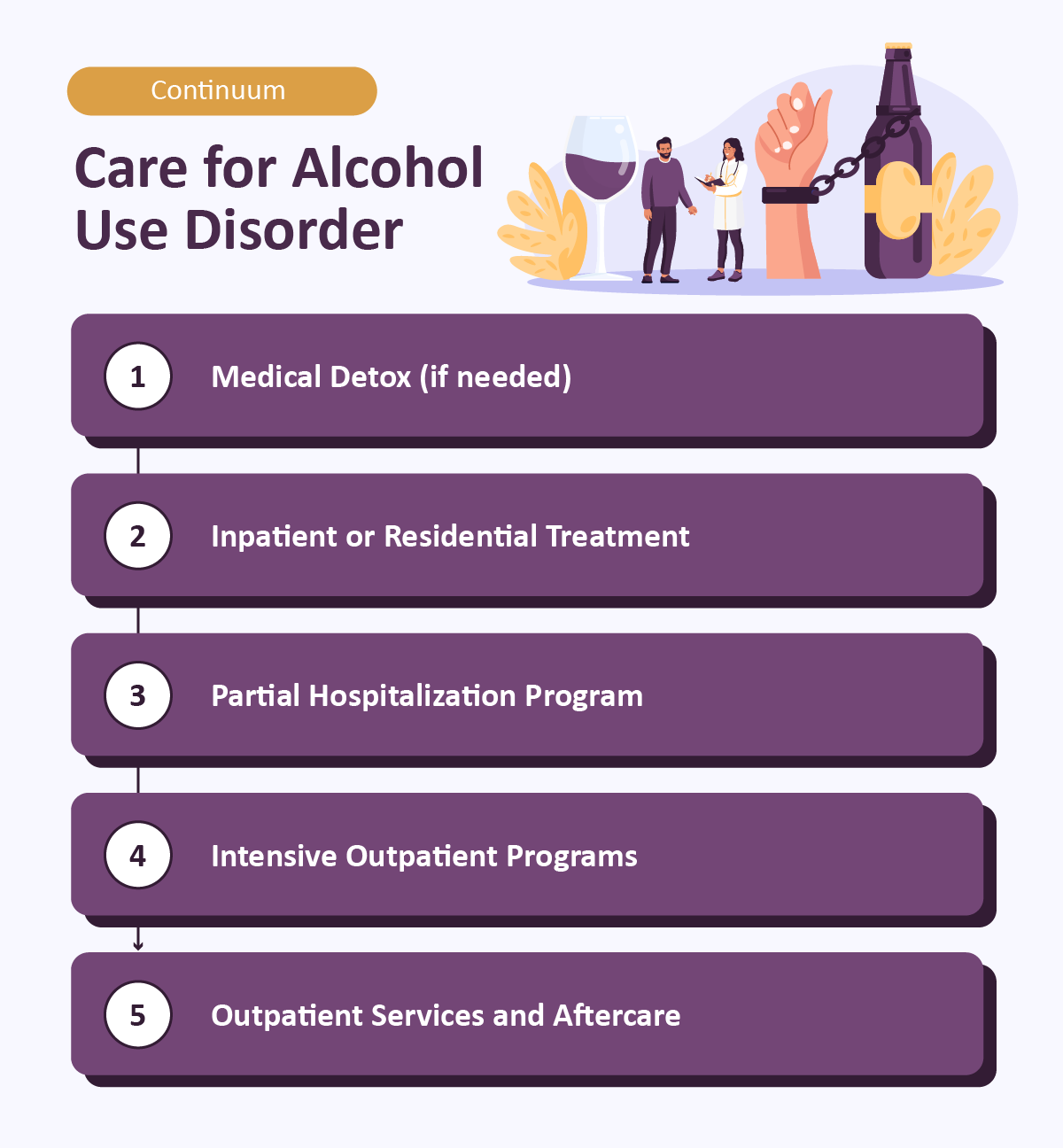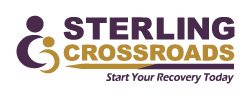Alcohol harms have risen nationwide in recent years, and Kentucky has seen similar trends. If drinking is causing problems in your life, help is available. Sterling Crossroads provides outpatient care designed to support your recovery in Central Kentucky. Explore our therapy programs in Mount Sterling or call 888.991.1476 to talk with our team.

When to look for alcohol treatment
Alcohol affects the brain and body in ways that can make stopping hard without support. As tolerance grows and drinking becomes routine, dependence can develop. You may benefit from alcohol addiction treatment if you notice common signs such as:
- You cannot cut back or stop despite trying
- Drinking causes health, work, legal, or relationship problems
- You need more alcohol than before to feel the same effects
- You feel withdrawal symptoms when you skip drinking
Alcohol addiction is a progressive condition, and early, evidence‑based help can protect your health and well-being. Reaching out to a trusted treatment center can be a key first step in your recovery journey.
What to look for in alcohol addiction treatment
Choosing the right program matters. The best fit addresses the whole person and the client’s unique goals, history, and health needs.
Level of care
Care levels range from 24/7 settings to flexible outpatient services:
- Inpatient treatment or residential treatment: structured care with round‑the‑clock support
- Partial hospitalization program: full‑day programming while you sleep at home
- Intensive outpatient programs: therapy sessions several days a week with strong support
- Standard outpatient treatment: weekly therapy as you balance daily life
Many people step down through levels as they progress.
Accreditation, safety, and staff training
Look for programs that follow national standards and have strong safety practices. Accreditation, state licensure, and experienced clinicians help ensure quality. Ask about staff credentials, supervision, and how the program monitors outcomes and client safety. A good treatment facility will explain how it handles emergencies and coordinates care with your primary doctor if needed.
Evidence‑based therapies and personalized care
Effective addiction treatment uses a comprehensive approach:
- Individual therapy for targeted, personalized help
- Group therapy for peer community support
- Family therapy to promote communication and healing for family members
- Trauma‑informed care to address past trauma in a safe space
- Personalized treatment plans based on a comprehensive assessment
When alcohol use and mental health disorders occur together, look for programs that can coordinate or offer dual diagnosis care. Treating substance use and mental health at the same time often leads to better engagement and stability.
Medication-assisted treatment and care coordination
For some people, medication-assisted treatment can reduce cravings and support the recovery journey. Medications for alcohol use disorder include options like Vivitrol (extended-release naltrexone), acamprosate, and disulfiram. These are prescribed by medical professionals as part of addiction treatment services, either at the treatment center or in coordination with providers.
Location and schedule
Transportation times and schedule flexibility matter. Convenient access makes it easier to stay engaged and consistent, especially in outpatient care. If you live in or near Montgomery County, our addiction therapy program in Mt. Sterling offers local support that fits into daily life.
What happens in alcohol rehab
Most programs begin with a comprehensive assessment to understand your substance use, mental health, medical history, and personal treatment goals. If withdrawal is a concern, a provider may refer you to a medical detox program to stabilize safely.
Once you are stable, therapy focuses on skills for sobriety, coping with cravings and triggers, relapse prevention, and strengthening support systems. Depending on your care needs, you may attend individual therapy, group therapy, and family therapy. Many centers also include education about sleep, nutrition, and stress management to support whole-person health. In general, a holistic approach to treatment is more effective than just medication or just individual therapy alone.
The recovery process includes planning for aftercare, such as ongoing counseling, alumni programs, or step‑down levels of care (for instance, moving from intensive outpatient to regular outpatient care).
Costs, payment, and support in Kentucky
Costs vary by level of care, length of stay, and services provided. Residential treatment and partial hospitalization often cost more than outpatient options. Some programs accept insurance or offer payment plans. If you need help exploring options, you can contact providers directly or call the SAMHSA National Helpline for confidential, 24/7 guidance about local resources.
How to find alcohol recovery programs in KY that work
When vetting addiction treatment programs, ask about:
- Accreditation and staff qualifications
- Evidence‑based therapies and personalized treatment
- Coordinated care for mental health treatment
- Medication-assisted treatment options and care coordination
- Levels of care, schedule, and location
- Aftercare planning and alumni or peer support
- Policies on safety, privacy, and communication with family members
Review a provider’s site to learn about its treatment programs and gather your specific questions, then schedule an assessment to discuss the best fit for your recovery journey.
Addiction recovery in Mount Sterling at Sterling Crossroads
Sterling Crossroads offers addiction treatment tailored to the needs of people in Central Kentucky. Our clinicians focus on evidence‑based therapy, practical skills, and compassionate support. We can help you build a plan that fits your life, and we collaborate with community resources when higher levels of care are appropriate. Learn more about Sterling Crossroads’ addiction treatment center or call 888.991.1476 to get started.
FAQs about alcohol addiction recovery
What is the most popular program for recovering alcoholics?
Mutual‑support groups like Alcoholics Anonymous and SMART Recovery are widely used, and many people also engage in outpatient programs. There is no single best option, so the right mix depends on your needs and goals.
How much does rehab cost in Kentucky?
Costs vary by level of care and length of stay. Residential treatment and partial hospitalization programs typically cost more than outpatient treatment. Always ask about insurance options and estimated costs up front.
How long are most alcohol rehab programs?
Timelines vary, but many residential care stays last 30+ days, while intensive outpatient programs often run 8 to 12 weeks. Your plan should be adjusted to your progress and needs.
How do I get help if I think I am an alcoholic?
Reach out to a trusted provider, your primary care clinician, or call SAMHSA’s Helpline. You can also call us at Sterling Crossroads at 888.991.1476 to schedule an assessment and discuss treatment options.
Are there programs that offer help to families of alcoholics?
Many families find support through Al‑Anon Family Groups and SMART Recovery Family & Friends.
Do you treat drug addictions besides alcohol?
Yes, we know that drug and alcohol addiction often intersect, and we have specialized programs for opioid addiction and other substance dependence.
Start your journey to lasting sobriety in Mount Sterling
You do not have to hit rock bottom before you ask for help. Find compassionate alcohol treatment with a comprehensive approach at Sterling Crossroads today. We offer personalized treatment plans to help you achieve lasting sobriety with care that fits your life. Start your recovery journey and overcome addiction at a trusted treatment center in Kentucky.





